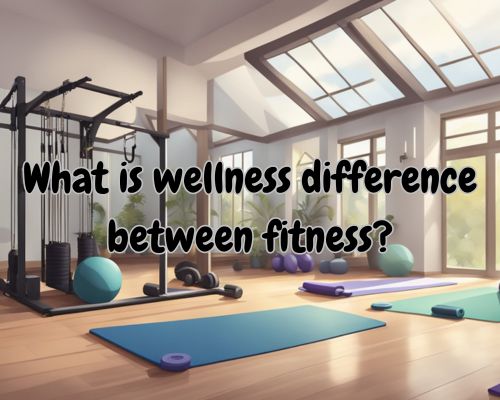Wellness and fitness, while often used interchangeably, encompass distinct concepts that are crucial for your overall well-being.
Fitness primarily focuses on your physical health. It refers to your body’s ability to function efficiently and optimally in work and leisure activities.
It involves regular exercise, proper nutrition, and sufficient rest, aimed at enhancing your strength, endurance, and flexibility.

Wellness, on the other hand, is a broader concept.
It integrates physical, mental, emotional, and social dimensions, striving for a balanced state where you feel fulfilled and healthy.
By maintaining wellness, you achieve harmony in various aspects of your life beyond just physical fitness.
When you consider both wellness and fitness, it becomes clear that while they overlap, their differences are notable. Understanding these concepts helps you adopt a more comprehensive approach to health, ensuring you not only survive but thrive in your daily life.
Exploring the Concepts of Wellness and Fitness
Wellness and fitness are essential for achieving a balanced life.
Jane Benson from Bikram Yoga Mornington highlights that “Wellness encompasses mental, social, and emotional dimensions, while fitness focuses on physical health through activity and strength.”
Definition and Scope of Wellness
Wellness involves a comprehensive view of health that encompasses several aspects.
It is a holistic approach aimed at achieving balance and harmony in various dimensions of life, including mental, emotional, social, spiritual, and environmental wellness.
Wellness is about cultivating mental clarity and emotional well-being which contribute to the overall quality of life.
You achieve wellness by engaging in practices that nurture each aspect, such as mindfulness for mental wellness and social interactions for strengthening social well-being.
Emphasising a well-rounded lifestyle, wellness strives for sustained well-being beyond just physical health.
Understanding Fitness
Fitness focuses on physical health and is achieved through various forms of exercise and physical activity.
It involves strength, endurance, body composition, and cardiovascular health.
Engaging in regular physical activity enhances your body’s physical strength and stamina.
Maintaining fitness requires consistent efforts, such as aerobic exercises to boost cardiovascular health and resistance training for muscular development.
Unlike wellness, which covers broad lifestyle aspects, fitness specifically targets physical fitness levels, ensuring you have the energy and ability to perform daily tasks effectively. See Jane Benson from Bikram Yoga Mornington fore more.
Practical Steps to Achieve Wellness and Fitness
Achieving both wellness and fitness requires intentional lifestyle changes and proactive health management.
Focus on developing healthy habits and preventative measures to support your physical and mental well-being.
Lifestyle Choices and Habits
Adopting an active lifestyle significantly contributes to both wellness and fitness.
Engage in regular exercise such as walking, cycling, or swimming to boost longevity and mental well-being.
Even a 30-minute daily workout can enhance energy levels and improve life satisfaction.
Pair these activities with a balanced diet, incorporating whole foods, fruits, and vegetables to ensure optimal nutrition.
Sleep quality and rest are essential for emotional well-being and self-care.
Prioritise 7-9 hours of sleep each night to manage stress and rejuvenate your body.
Incorporate mindfulness practices like meditation and breathing exercises, which can reduce anxiety and improve focus.
Building healthy relationships and maintaining social interaction also support emotional and spiritual well-being.
Preventative Health and Management
Preventative health is crucial for avoiding chronic diseases and maintaining optimal health.
Regular health check-ups allow early detection and management of potential issues.
Develop wellness goals that focus on weight management and stress management.
Consult wellness coaches or health professionals to tailor strategies for your needs.
Practise effective self-care by monitoring your mental health.
Tools like journaling or talking to a therapist can enhance mental wellness.
Recognise signs of stress and employ tactics like deep breathing or progressive relaxation to mitigate effects.
By proactively managing health challenges, you ensure a healthy, fulfilling life that enhances your overall happiness and connection.
